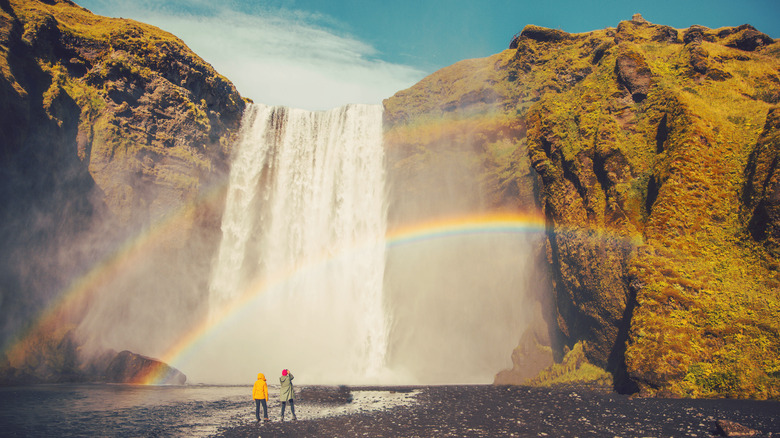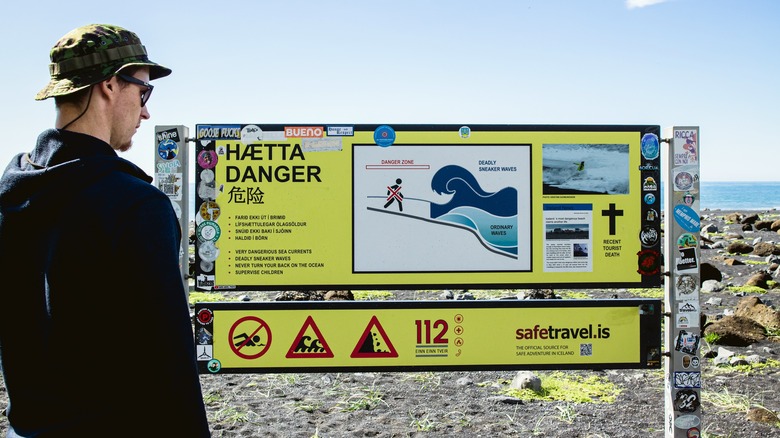The Breathtaking European Country Consistently Recognized As One Of The World's Safest
When it comes to choosing your next travel destination, peacefulness and safety go hand in hand. Since 2008, the Institute for Economics & Peace (IEP) has published its annual Global Peace Index, a ranking of "163 independent states and territories according to their level of peacefulness." And every year since one small European country has yet to be unseated from its position as the No. 1 most peaceful country in the world.
Known for fiery volcanoes and black sand beaches, stunning waterfalls and bursting geysers, and awe-inspiring glaciers and thermal springs, Iceland is a leader among Europe's safest countries. IEP is an Australia-based think tank that considers many indicators in determining this ranking, including political instability, the impact of terrorism, and levels of violent crime. According to these measures, Iceland has statistically proved itself to be one of the world's most peaceful countries, and this is easy to see and feel when you arrive.
With a small population, a police force that doesn't even carry guns, and nearly 40,000 square miles of splendid terrain to give everyone plenty of breathing room, it's no wonder why Iceland has been consistently named one of the safest countries to travel to in the world.
However, that doesn't mean a trip to Iceland comes with a danger-free guarantee. Here's what you need to know about how safe Iceland really is and some things to be aware of before you go.
How safe is Iceland?
With crime rates near zero, it's not very likely to become a victim of a crime when you're traveling or living in Iceland. Although, there has been a rise in pickpocketing targeting tourists at popular landmarks.
But just because it's the most peaceful country in the world, that doesn't mean bad things don't happen here. The biggest risks tourists face in Iceland are the weather and nature. Tourists are constantly underestimating the intensity of the wind, which can reach up to 70 mph in stormy conditions, making icy roads even more hazardous. To make sure you're in tune to your surroundings, the Icelandic Tourist Board recommends downloading the Safetravel Iceland app to find the latest information regarding weather, road conditions, and even volcanic eruptions.
Danger may also find you in Iceland if you choose to ignore the safety rails and warning signs posted at popular tourist attractions. Take the unique and stunning black sand beach of Reynisfjara for example, where there have been numerous fatal incidents of people getting swept away by strong sneaker waves that rush in without warning. As wondrous as Iceland's natural scenery is, it's important to stay aware of slippery stones and steep ledges, and always always read the warning signs — they're there for your own good.

